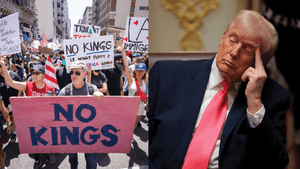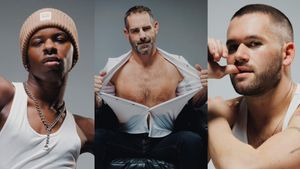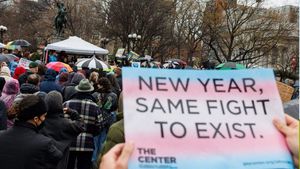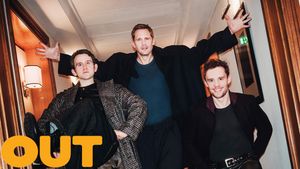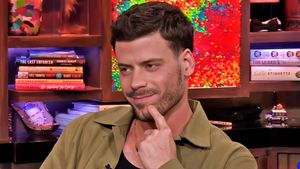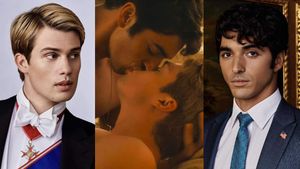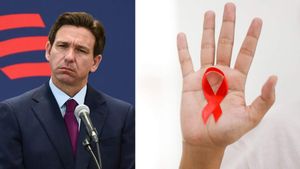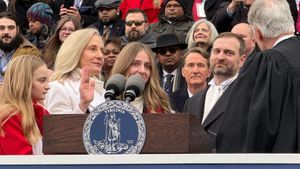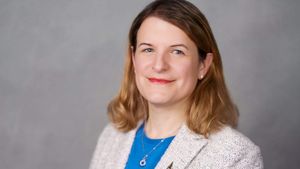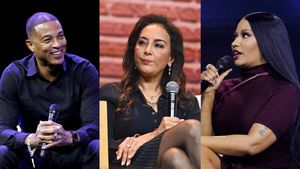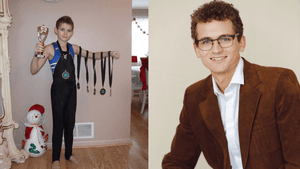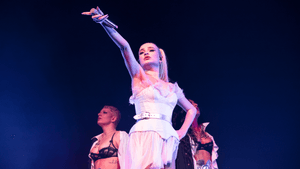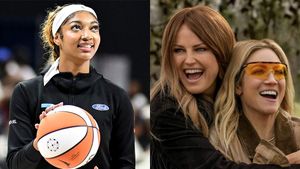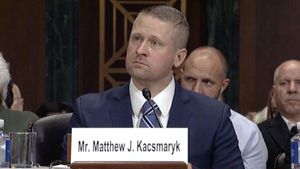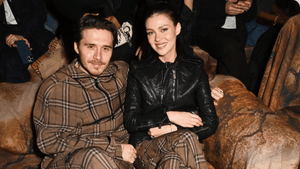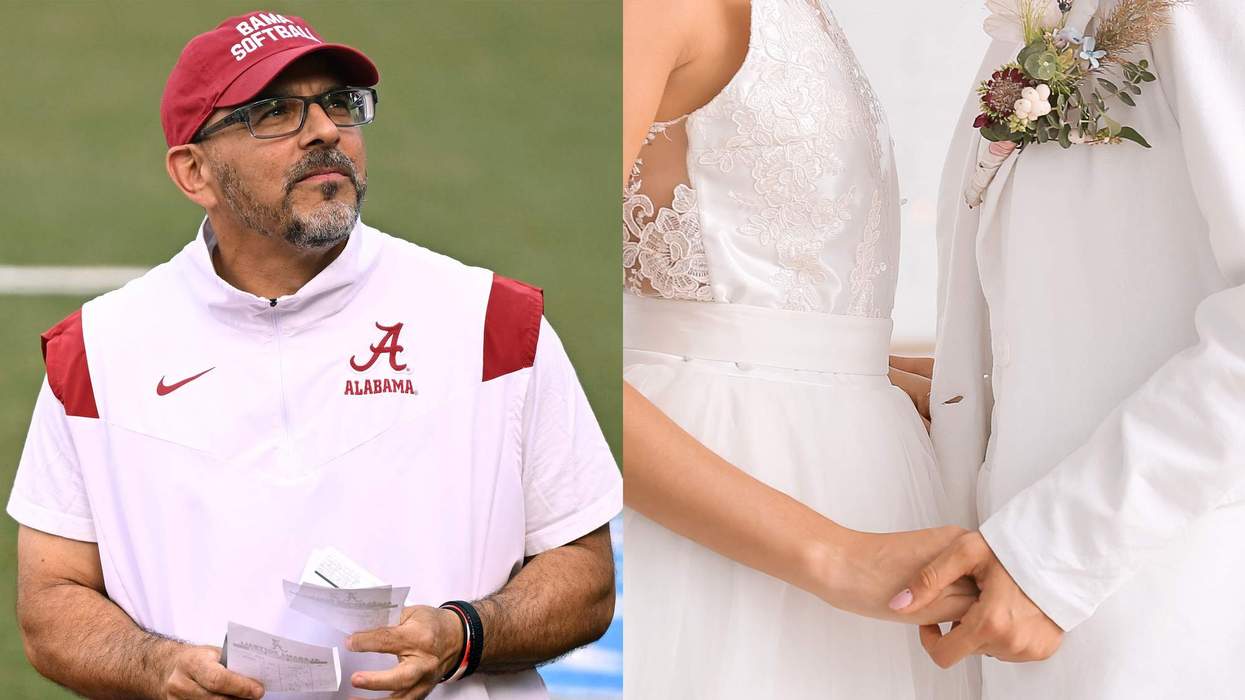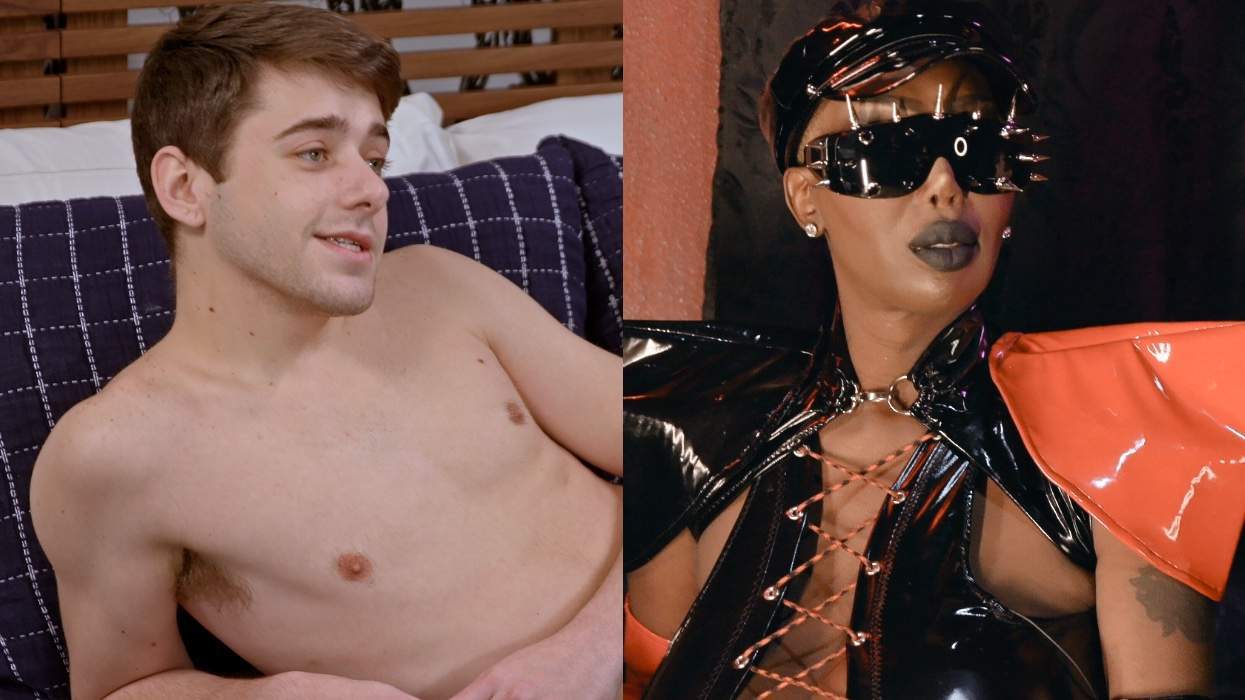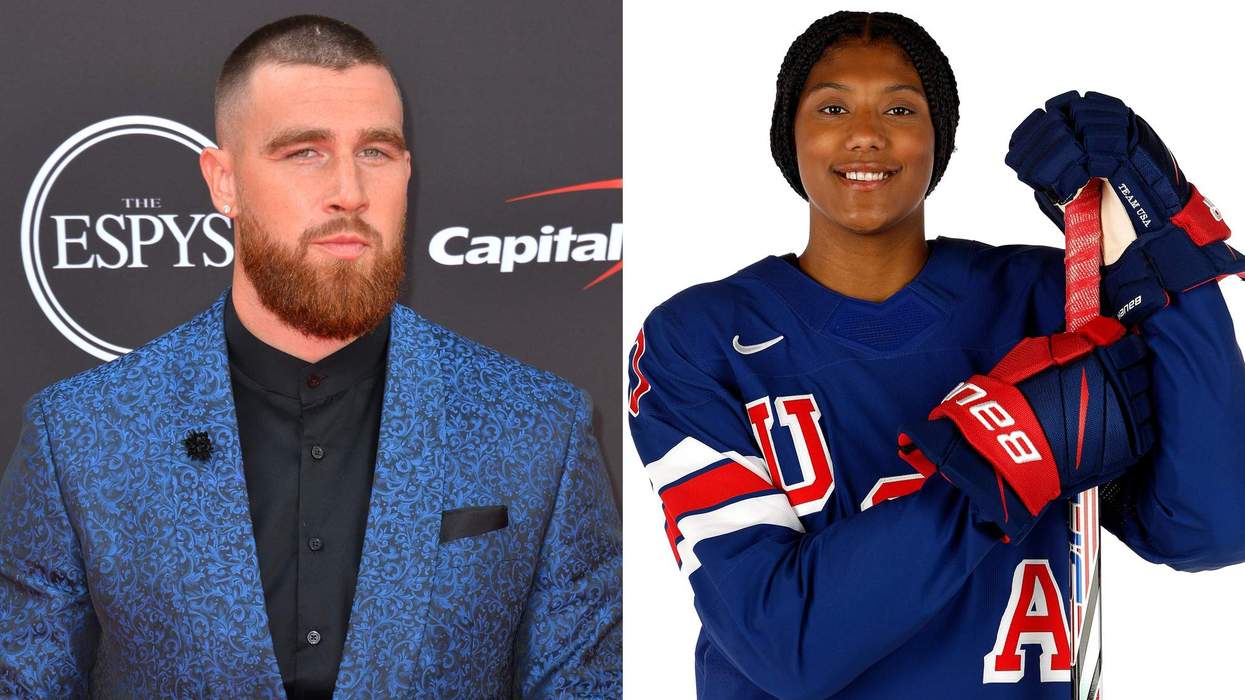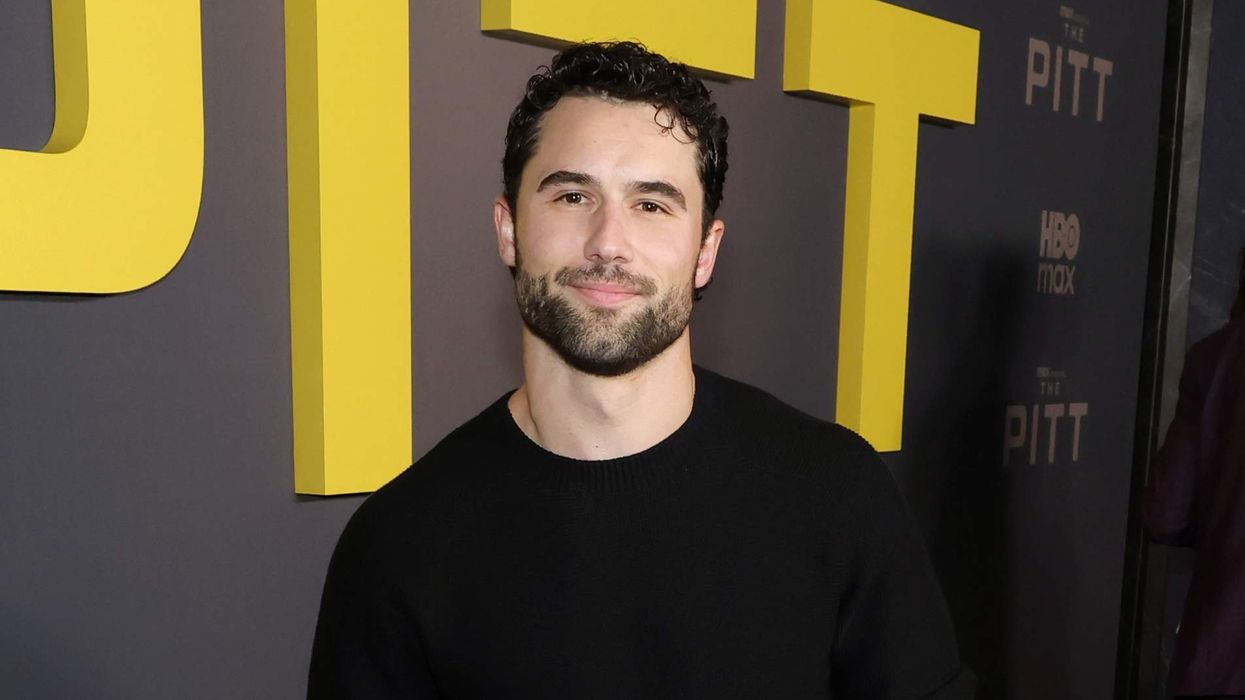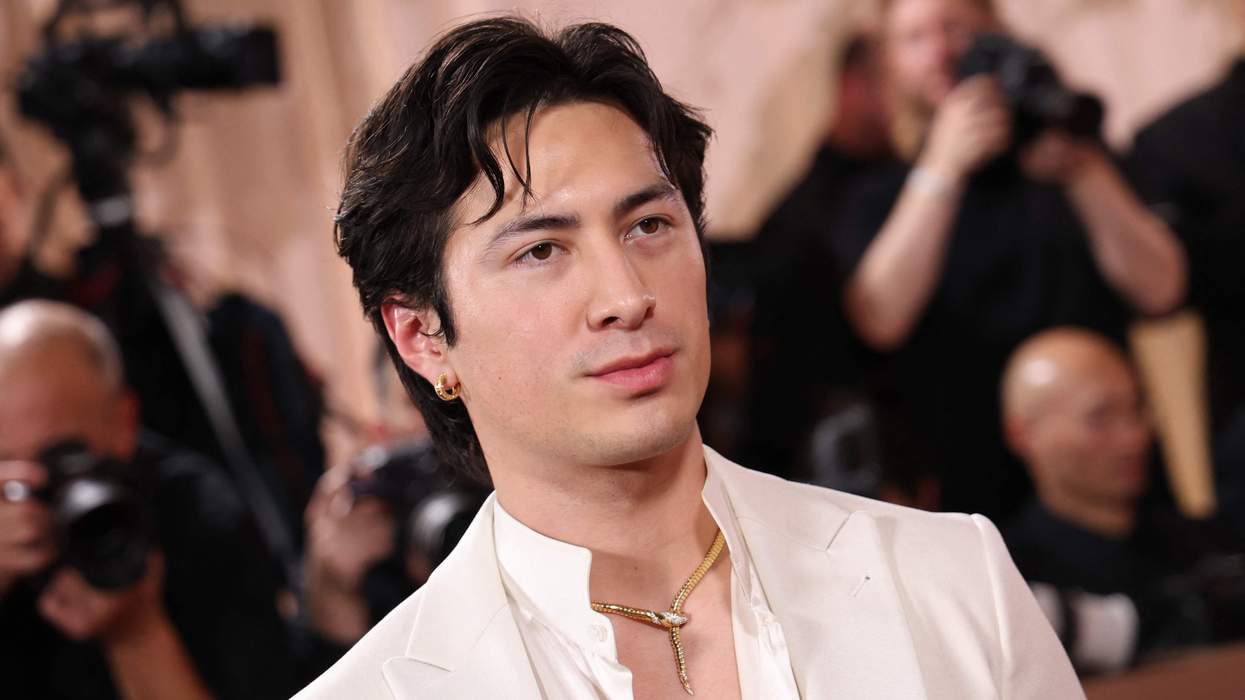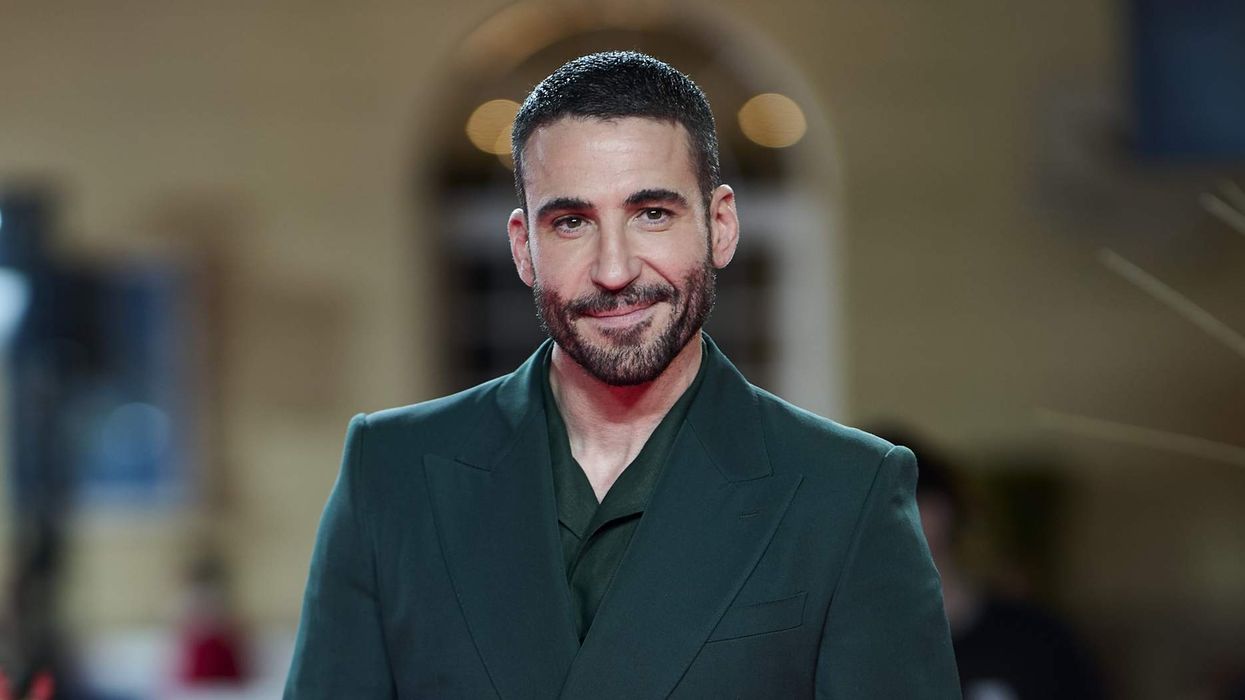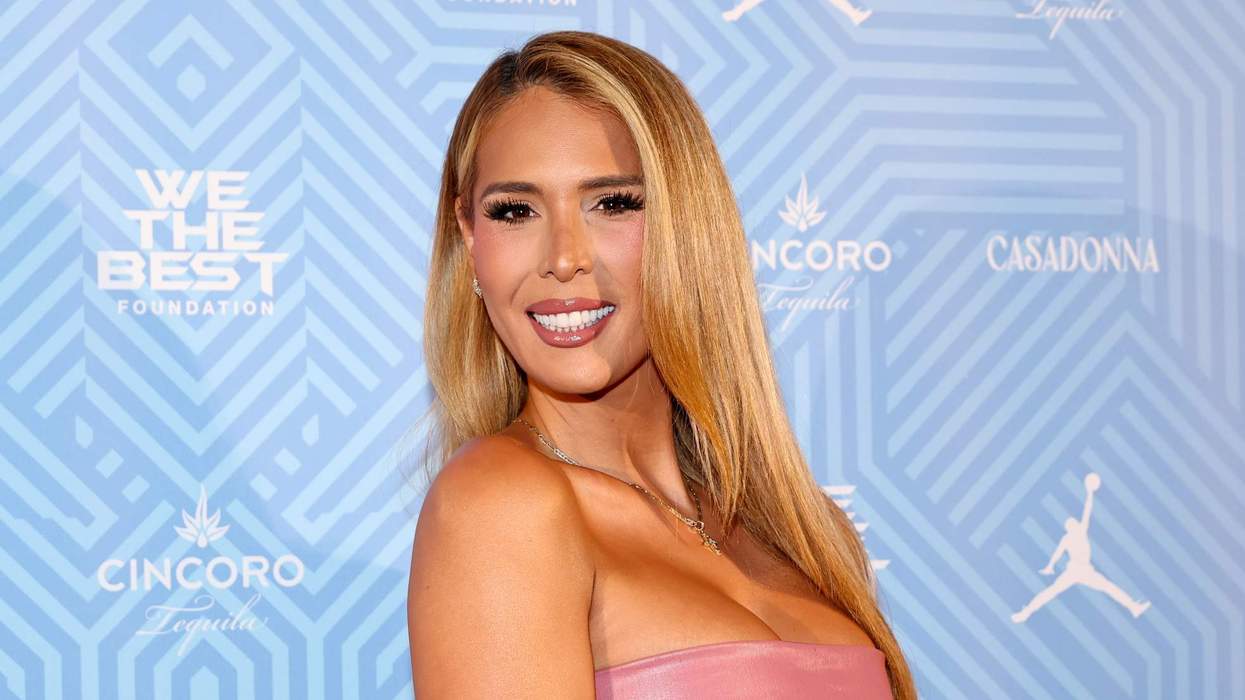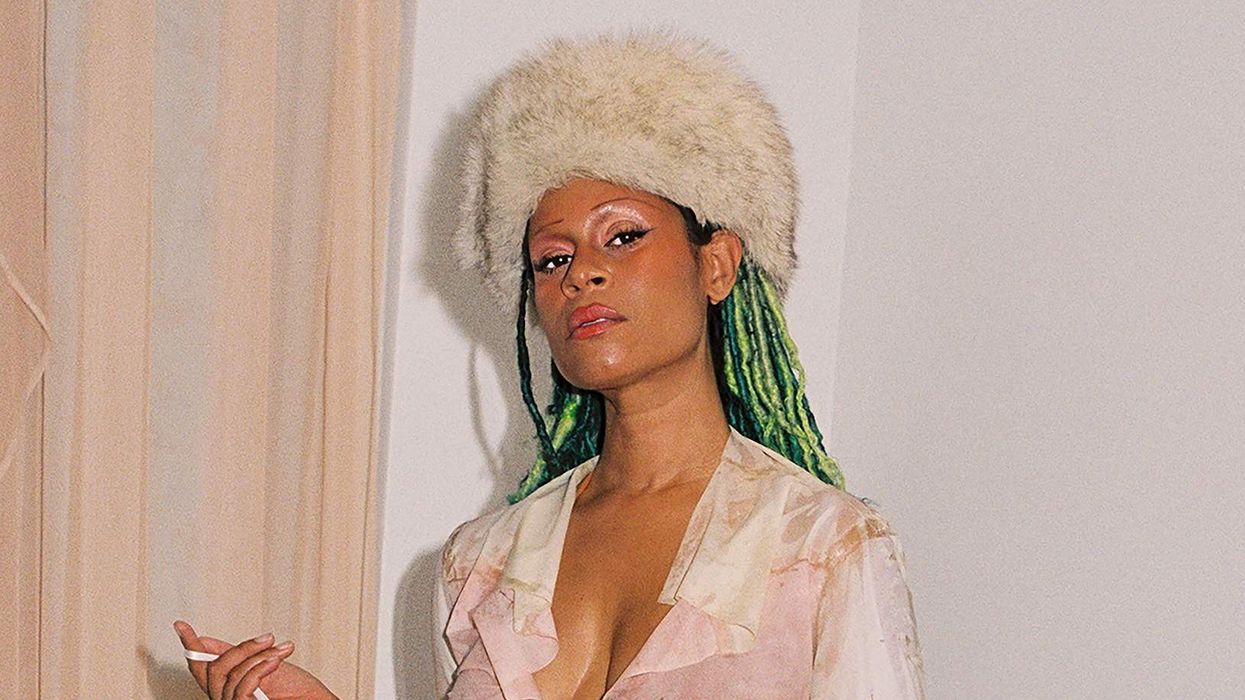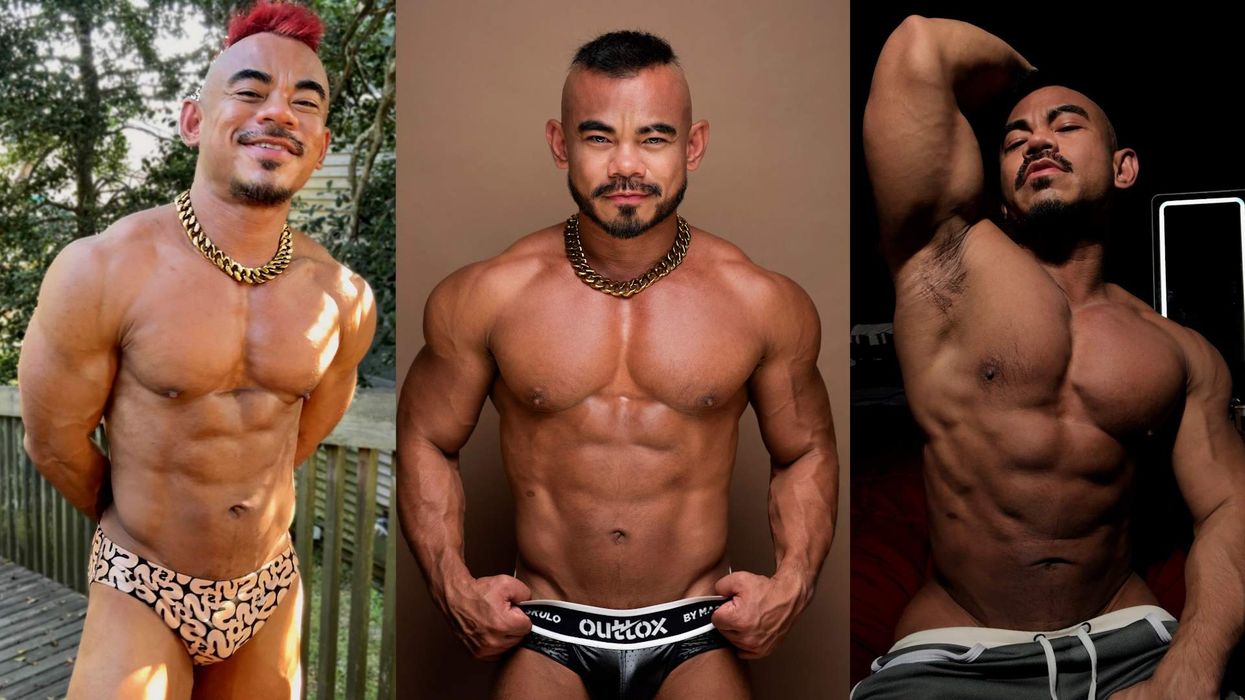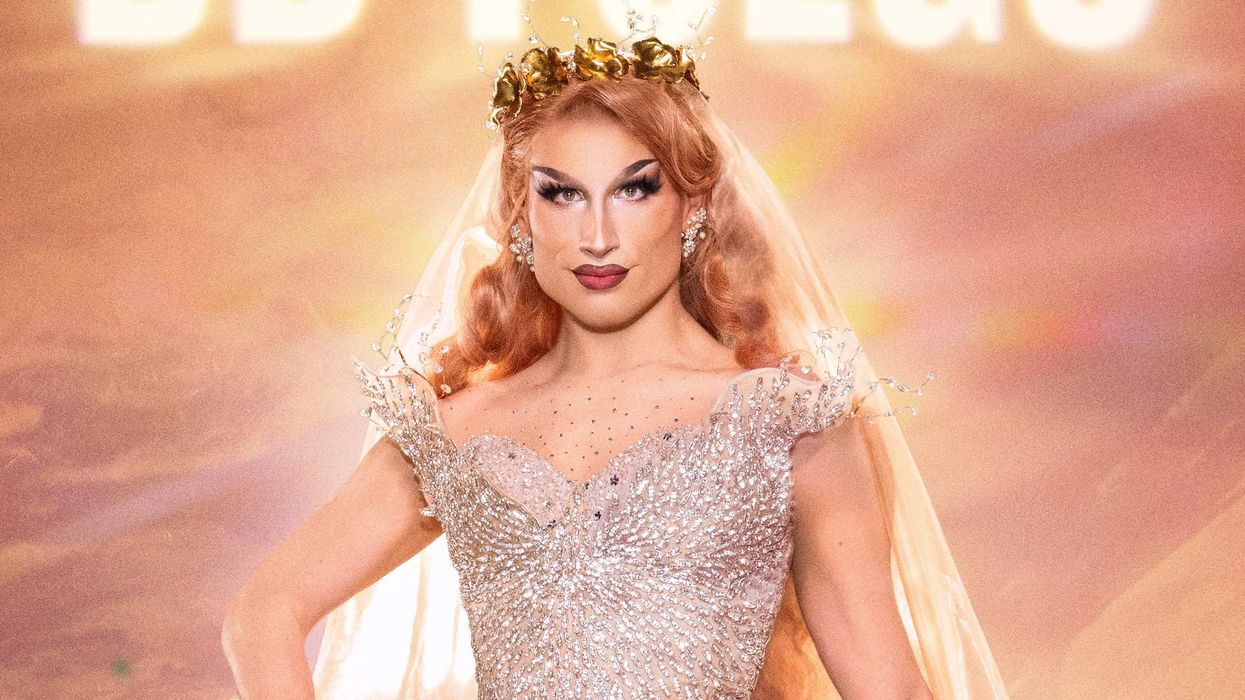How Railey and Seazynn Gilliland joined the cast of the new Freevee series High School is the kind of Hollywood fairytale you don't think happens in real life — but sometimes it does. Sometimes, you’re working at a pizza parlor in Fresno, Calif. with your best friend and twin sister, when a bonafide rock star reaches out to you. The reason: They want the two of you to play them and their sister in a TV series about their lives. It seems unbelievable, and yet it happened to the 21-year-old twins who, as it turns, out were a perfect fit for the roles, and are set to make their acting debuts as queer indie pop icons Tegan and Sara.

For Railey and Seazynn, stepping into the role of Tegan and Sara, respectively, wasn’t difficult, as Railey says they found the characters instantly relatable. “I mean, for one being both gay twins and having that experience was relatable, but then also even the situations that they would go through,” she tells PRIDE. “Our first audition page that I had read [had] Sara starting a fight with Tegan, it was because Tegan had been so upset that Sara and [and their friend] Phoebe were shutting out Tegan — that part of it was relatable for us as well.”
It was a case of “meant to be,” and once they had begun production and Sara and Tegan saw them on set, the artists were each struck by how powerful it was to see their (adapted) story play out as played by twin sisters.

“One of the things I was really, really, really unprepared for in this process was how moving it would feel to see twins on screen. I had never seen twins that represented us,” Sara says. “We talk a lot in the LGBTQ+ community about representation and how there’s like such a lack of representation for so many of us, because, in a scarcity model, it’s like, Yeah, there’s a lesbian movie, but that’s not going to represent every lesbian experience, or There’s a queer movie, and that should represent all of us. No, it doesn’t. …There’s not a lot of twin representation.”
It’s something she says resonated more for her now than perhaps it might have in the past. “Tegan and I, in our 40s, are starting to really come to terms with how profound being a twin has been for us and how misunderstood that idea is and how there are all these tropes and stereotypes and all these like ridiculous things that people think and it’s not that big of a deal, but to suddenly feel like, Oh my god, we’re making something that represents our experience, not just as sisters, not just as queer women, not just as artists, but as twins,” says Sara, who added that she often finds herself crying when the Gilliland twins would be sharing a scene. “This is so moving to see these girls. So, I don’t know, cellularly representative of what I remember it being like to be a twin. I just loved that experience.”

Seeing the sisters working together was also impactful for Tegan, who couldn’t help to see parallels between the Gilliland’s dynamic and the one that she shares with her sister. “There’s so many myths and misconceptions about twins, like everyone thinks we’re all best friends with each other,” explains Tegan. “But I saw conflict between Seazynn and Railey in real life that made me feel better about me as a twin. They do say “We’re best friends,’ [but] I would see that they have moments of frustration and conflict. And I was like ‘See, it’s normal. It’s not all fucking cupcakes and balloons and happiness all the time. Sometimes it’s really fucking hard to have somebody who looks like you, who’s around you all the time, who has the same interests, and everyone sort of groups you together.’”
“I catch myself doing it where I want to call them the twins,” she admits. “And then I’m like, no, they have names. People do it to us all the time. We’re ‘the girls’ or ‘the twins’ or ‘the band.’”
Like series creator Clea DuVall, Tegan was instantly charmed by Railey and Seazynn when they began working together, and she felt a kindred-spirit connection. “Getting to know them and getting to hang out with them, and then being on set with them and seeing their work ethic. It mirrored experiences that I’ve had that I had no way to share with other people and have them understand,” Tegan says. “Like seeing [Seazynn and Railey] struggle, seeing one of them having a tough day. And the other one supporting [her] or being annoyed by that. I could find a thousand examples where I’ve gone through that.”

In turn, the girls felt a profound need to not only do well in their performances but, like everyone else involved, to get it right. Seazynn recalled one scene when her character confronts her stepfather Patrick (Kyle Bornheimer) for using a homophobic slur about Kurt Cobain. “The conversation from that I think was really important. That was the scene where I hoped that I did a good job on because that one was important and I think meant something to me and would to other people,” Seazynn shares.
In the show it’s Sara who has this experience with her parents, in real life it was Tegan who confronted her stepfather (an example of how the show both deviates from the source material but remains true to his spirit throughout). “I loved the scene. I thought it’s handled really well,” recalls Tegan. “It’s tough. Even writing the book I had to call my stepdad and tell him I’m putting the story in the book. But I think I do a good job of making sure everyone can see that [f****t] was a word people used at the time. [In the book], we spend like four hours, both of us crying, talking through what the word means and why I love Kurt Cobain. And why it was not OK that he said that, like it was like a deeply, deeply, deeply moving experience that stood out in my childhood,” she recalls. “I didn’t want anyone to misread or misunderstand the story. The story is about how he understood us and loved us and transcended his ignorance at that time, because he loved us and understood on some level that I was defending us.”

That story is an example of how this show transcends above a typical coming-of-age story, because Tegan and Sara have complex levels of identity, and so does High School, particularly in the skillful and circumspect hands of DuVall. While homophobia does occasionally crop up in the series — it’s set in the ‘90s after all — it was important to Tegan that it not dominate the narrative. “We were really careful about this story. I think our book celebrates queerness, she says. “[It’s] not just all homophobia — inner homophobia and outside homophobia. [For example] the bullying that happens is not about us being gay. It’s about us being weirdos, and teenagers, and tough growing up in the neighborhoods we did.”
“I didn’t want this to be traumatizing for people to watch,” she assures. “It is hard, like Sara did struggle in high school, so we didn’t want to glaze over that either.”
One of High School’s greatest strengths is the complexity and depth of the relationships it depicts, whether that be between the siblings, their parents, or, of course, their romantic connections. “We wanted it to be romantic,” Tegan says, but for her, that looks less like constant crushes and more, well, real. “When we were shooting the show, we were in our high school [and] the thing that I felt the most nostalgic about was just friends. Like where you get to spend all day with your friends. And then you get home and you want to talk on the phone with them all night. I feel like the show is doing such a great job of honing in on that because not everything was about crushing on all my girlfriends. I didn’t want to be their girlfriend, I wanted to be around them all the time.”
“I don’t think we see that [on television],” she adds. “We see a lot of teen girl shows [that] are about bullying and ostracizing and cutting them out. This is about the love affair that happens between queer girls, but also just girls and alternative people.”
Across the board, the cast and creators have high hopes for the series. Beyond aspirations for additional seasons — although they do have plans in mind for that as well, should the show be picked up for season two — they hope High School will connect with the audience that needs it most.
“I really just hope that [the audience] feels seen,” says DuVall. “I think it is so powerful to see yourself in something. Our story is so unique, because it is about these twins and this coming of age, and also them becoming artists and getting comfortable with their queerness. I’ve never seen anything like it before, but I still feel it’s so relatable, even though it’s so unique. I really just hope it offers some sort of comfort of ‘me too, I get it. You’re not alone.’”
For Railey, the anticipation of audiences getting to experience the series, with all its twists, turns, and poignancy is palpable. I’m so excited,” she gushes. “I just think about it every day. I’m like, oh my god. I can’t wait. I can’t wait. I hope it does well. I hope people love it. I’m hoping for season two and I’m just so excited for people to be able to see it.”

Railey has nothing to worry about — the show is excellent. For queers who lived through the ‘90s, it’s a nostalgic journey full of the sights and sounds of the era. But for those who didn’t, who are perhaps closer to the Gillilands’ generation, will discover a timeless story of self-discovery, love, and human connection. Also, the soundtrack slaps. All of these make this the perfect intergenerational watch, something that Tegan is hopeful will lead to important family conversations.
“I hope parents watch it with kids...especially with everything happening, with the rollback on trans rights and the attacks on trans kids,” says Tegan. “There’s still this real disconnect sometimes for people wanting to cut young people off from representation in books because it feels perverted to them, because sexuality and sex become the same thing, but they are different things.”
“This is not a highly sexual show, but it is a show that is about sexuality,” she stresses.

“I hope young people can watch it and feel seen,” says Tegan. “And I hope older people can watch it and also recognize that this is still happening, that it’s still hard to be a teenager, and it’s even harder when you have a marginalized group.”
“I also hope people fall back in love with the idea of friendship,” she adds. “How cool it was just to go and stand in line for tickets to a concert, and just have that experience and how beautiful it is, you know?”
Ultimately, High School is a love letter to love in all its forms. If we were to give it a grade, it would easily earn an A+ (that’s a 9 for our Albertan friends).
The first four episodes of High School premiere October 14 on Amazon Freevee. Watch the trailer below.
High School | Season 1 Trailer | Coming October 14www.youtube.com
Photographer: Jen Rosenstein @jenrosenstein
Digitech: Josh Fogel @josh_fogel
Photo Assistant & Behind-the-Scenes: Aly Whitman @alywhitman
PA: Vanessa Craig @vanessacraiglist
Hair: Railey & Seazynn, Nancilee Santos @nancileesantos; Tegan & Sara, Leticia Llesmin @leticiallesmin; Clea, Sheridan Ward Hair @ sheridanwardofficial
Makeup: Railey & Seazynn, Courtney Hart @courthart; Tegan & Sara, Leticia Llesmin
Styling: Railey, Seazynn, Tegan & Sara, Jade Hurtado @jadelhurtado; Clea, Edwin Ortega Styling @edwin.j.ortega
RELATED | Tegan & Sara, Clea DuVall, & Railey & Seazynn On High School


